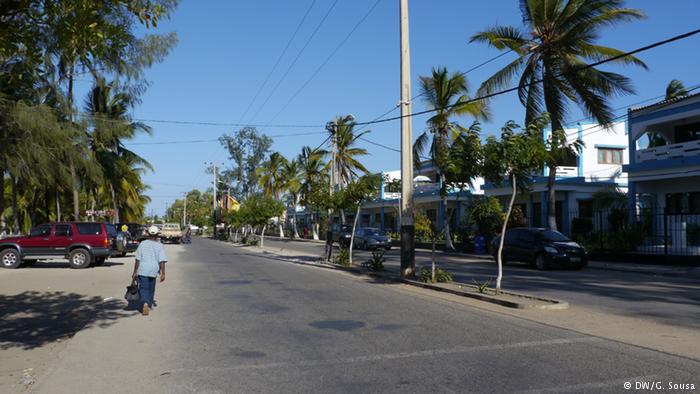Trump administration weighs adding 36 countries to travel ban, memo says
Police say they have “important data” about Mocímboa da Praia attacks

DW (File photo) / Mocímboa da Praia
The director of Mozambique’s National Criminal Investigation Service (SERNIC), Ilidio Miguel, told reporters on Tuesday that SERNIC is now in possession of important data concerning the attacks by Islamic fundamentalists in Mocimboa da Praia district, in the northern province of Cabo Delgado.
He was speaking during a ceremony marking the first anniversary of the creation of SERNIC. But, according to a report in Wednesday’s issue of the independent newssheet “Mediafax”, he declined to give any details of this information, on the grounds that it would not be prudent to reveal it at this stage in the investigations. But he promised to give complete information about the Mocimboa da Praia incidents in the near future.
Miguel said that, since the initial attacks against police installations in Mocimboa, the authorities have been trying to understand the motives driving the attackers.
The first islamist raids, on 5 October, took the government completely by surprise – although local people, including the Cabo Delgado orthodox moslem leadership, had long warned of the presence of a fundamentalist group. Captured members of the group have confirmed that they do not recognise the legitimacy of the Mozambican state and government.
Although the defence and security forces quickly re-established control of Mocimboa town, there have subsequently been sporadic attacks against police vehicles on the district’s roads. The General Commander of the police, Bernadino Rafael, warned of a “manhunt” against insurgents who did not surrender and, as part of these police operations, 24 suspected insurgents were taken off a bus travelling from Nacala to Mocimboa da Praia last week.
During the Tuesday ceremony, the Minister of the Interior, Basilio Monteiro, urged SERNIC to create innovative investigation methods in order to respond efficiently to the challenges of preventing and fighting crime.
He said the fight against crime was central to the maintenance of public order and tranquillity. Citizens, he stressed, wanted to see a criminal investigation service capable of responding appropriately and quickly to crime.
Monteiro pointed out that the government had set up SERNIC “because of the changes in the characteristics of crime, arising from social and economic transformations influenced by regional integration and globalisation. From these there emerge new forms of crime, increasingly sophisticated and immune to traditional methods of prevention and investigation”.
Monteiro promised that the government will continue to invest in the resources necessary for criminal investigation.
Ilidio Miguel claimed that, over the past year, SERNIC “has succeeded in reducing the level of violent crime. We have reduced the number of kidnappings and of cases of drug trafficking”.
But he admitted that “the challenges remain enormous”, and that many serious crimes have not been solved, and those responsible remain at large.












Leave a Reply
Be the First to Comment!
You must be logged in to post a comment.
You must be logged in to post a comment.